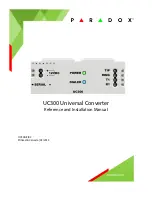
R&S AFQ100A
Instrument Model and Command Processing
1401.3084.32 5.25
E-3
Status Reporting System
The status reporting system collects information on the instrument state and makes it available to the
output unit on request. The exact structure and function are described in section
Output Unit
The output unit collects the information requested by the controller, which it receives from the data set
management. It processes it according to the SCPI rules and makes it available in the output buffer.
If the instrument is addressed as a talker without the output buffer containing data or awaiting data from
the data set management, the output unit sends theerror message "Query UNTERMINATED" to the
status reporting system. No data are sent on the IEC/IEEE bus or via the Ethernet , the controller waits
until it has reached its time limit. This behavior is specified by SCPI.
Command Sequence and Command Synchronization
What was said above makes clear that overlapping execution is possible in principle for all commands.
Equally, setting commands within one command line are not absolutely serviced in the order in which
they have been received.
In order to make sure that commands are actually carried out in a certain order, each command must
be sent in a separate command line.In order to prevent an overlapping execution of commands, one of
commands *OPC, *OPC? or *WAI must be used. All three commands cause a certain action only to be
carried out after the hardware has been set and has settled. By suitable programming, the controller
can be forced to wait for the respective action to occur (see table).
Command Action
Programming
the
controller
*OPC
Sets the Operation Complete bit in the ESR after all
previous commands have been executed.
Setting bit 0 in the ESE
Setting bit 5 in the SRE
Waiting for service request (SRQ)
*OPC?
Stops command processing until 1 is returned. This is
only the case after the Operation Complete bit has
been set in the ESR. This bit indicates that the
previous setting has been completed.
Sending *OPC? directly after the command whose
processing should be terminated before other
commands can be executed.
*WAI
Stops further command processing until all
commands sent before *WAI have been executed.
Sending *WAI directly after the command whose
processing should be terminated before other
commands are executed.
Table 5-1
Synchronization with *OPC, *OPC? and *WAI
















































